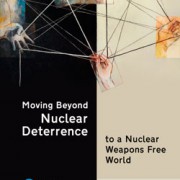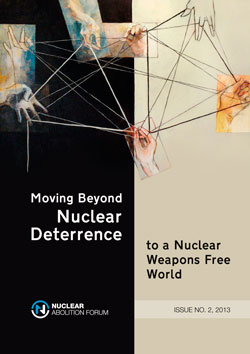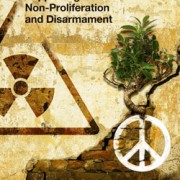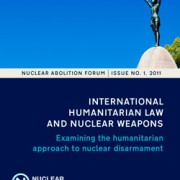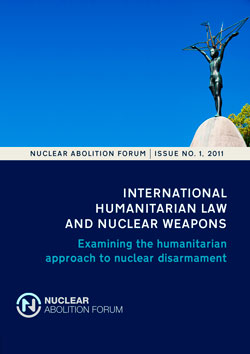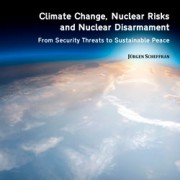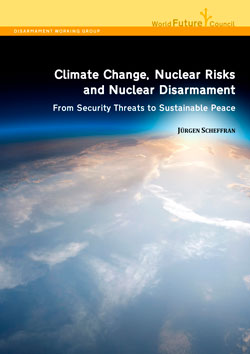25 innovative disarmament policies nominated for Future Policy Award 2013
Press Release – for immediate release
Hamburg/Geneva/New York– 6 June 2013: The World Future Council has today announced the nominations of the Future Policy Award 2013. In partnership with the United Nations Office for Disarmament Affairs (UNODA) and the Inter-Parliamentary Union (IPU), this year’s award seeks to highlight disarmament policies that contribute to the achievement of peace, sustainable development and human security. In response to a worldwide call for nominations, the World Future Council has received 25 nominations of best policy practice from all continents.
Moving Beyond Nuclear Deterrence to a Nuclear Weapons Free World
Abstract
This second edition of the Nuclear Abolition Forum is dedicated to an examination of the nuclear deterrence doctrine – the role it plays in security policies, its benefits and/or risks, and an exploration on how security could be achieved without nuclear deterrence in order to facilitate the establishment of a nuclear weapons-free world.
2013 Future Policy Award celebrates world’s best disarmament policies
Press release – for immediate release
World Future Council partners with the United Nations Office of Disarmament Affairs Hamburg
Hamburg/New York, 19 March – The World Future Council is pleased to announce that this year’s Future Policy Award will celebrate the world’s best disarmament policies. The World Future Council is collaborating with the United Nations Office for Disarmament Affairs to encourage new thinking on disarmament and to advance common solutions to this global problem.
Handbook: Supporting nuclear non-proliferation and disarmament
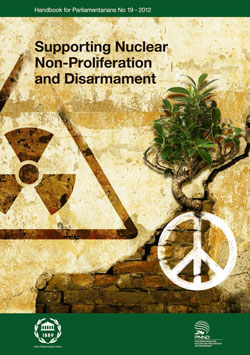
Abstract
The Handbook “Supporting nuclear non-proliferation and disarmament” identifies existing examples of good practice in the area of nuclear non-proliferation and disarmament and offers recommendations for further parliamentary action. The Inter-Parliamentary Union has commissioned Rob van Riet, Coordinator of the WFC Disarmament Programme, and Alyn Ware, Global Coordinator of Parliamentarians for Nuclear Non-Proliferation and Disarmament (PNND) and WFC Councillor, to produce the handbook.
Appeal to Rio+20: Disarmament for Sustainable Development
A Tank made of Bread
Hamburg / Rio de Janeiro, 15. June – A lifesize Tank made of Bread will support our Rio+20 appeal to redirect military spending to fund human needs and sustainable development. To demand the Rio+20 Earth Summit to address this issue, the initiative already counts with the endorsement of over 30 Nobel Prize laureates among other respected personalities (see full list).
International Humanitarian Law and Nuclear Weapons
Abstract
The inaugural issue of the Nuclear Abolition Forum offers a variety of perspectives on international humanitarian law (IHL) and nuclear weapons, including the development of IHL since the 1996 International Court of Justice Advisory Opinion on the Legality of the Threat or Use of Nuclear Weapons and the current state of the law with regard to use, threat and possession of nuclear weapons.
Climate Change, Nuclear Risks and Nuclear Disarmament
Abstract
This article examines the linkages between nuclear and climate risks, identifies areas where both threats converge, and offers an approach to move from living under these security threats to building sustain-able peace. By bringing to light the multidimensional interplay between climate change, nuclear risks and nuclear disarmament, this study aims to help the reader grasp their interconnectedness and recognize its critical implications for the strategic security environment. In addition, it explores prospects and open-ings to tackle these key challenges.


